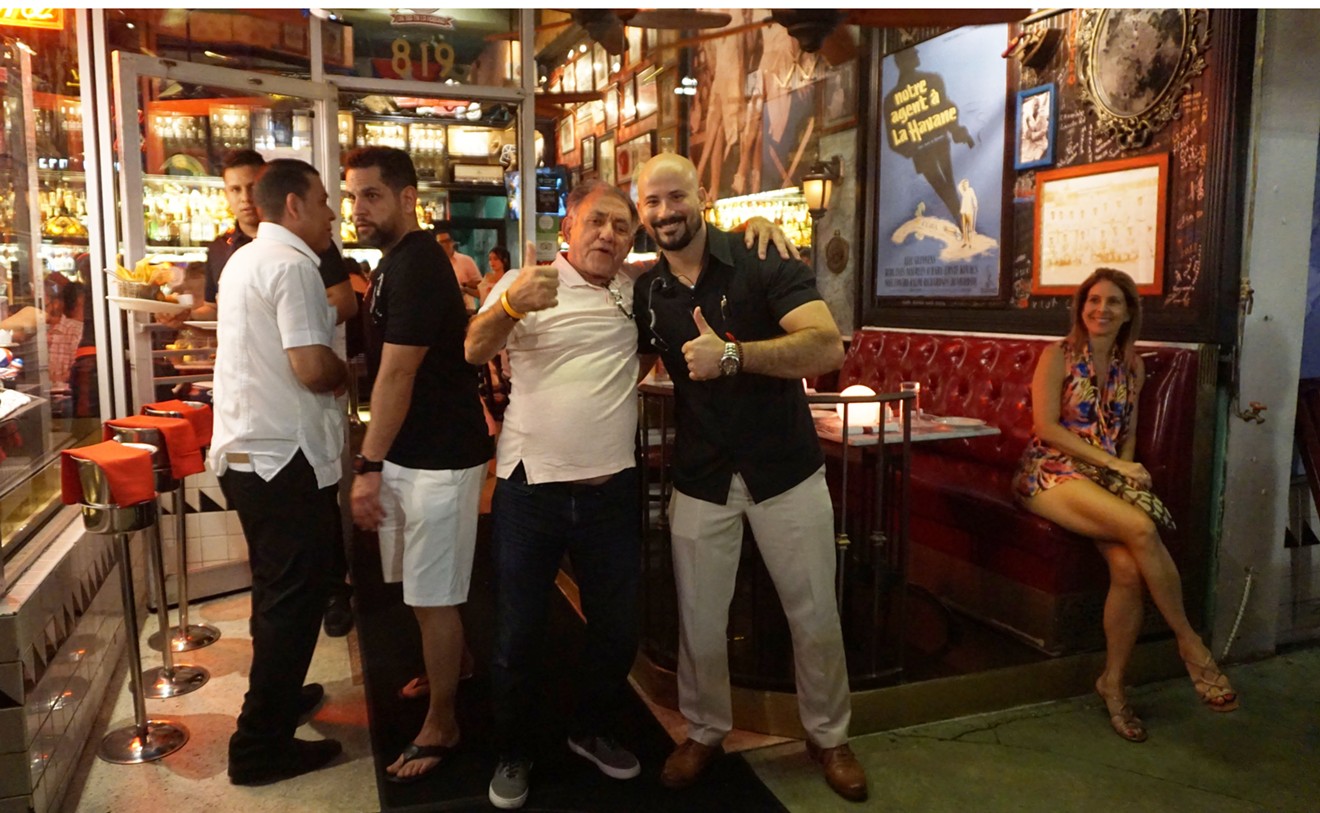It's a hot Saturday night on Lincoln Road, and Havana 1957 is on fire. Servers dash around, diners laugh over mojitos and yucca fries, and everyone sways to the Cuban beat.
“We were just walking by, and we liked the music,” Dallas vacationer José Alta says. “The music makes you feel like you're in a different environment.”
The City of Miami Beach, however, is cracking down on outdoor music on Lincoln Road, leaving guests and restaurants confused and frustrated.
An ordinance passed in May 2017 prohibits retailers and restaurants from playing outdoor music or having speakers within 20 feet of Lincoln Road's frontage or side streets. But the city just began enforcing the ordinance two months ago.
Since August 2018, 30 citations have been issued to businesses, including one to Havana 1957. When the city attempted to reinspect, the restaurant was still in violation. Havana 1957 is now awaiting a hearing on an appeal. (In an unrelated measure, the city yesterday agreed to also crack down on loud music at Ocean Drive restaurants, but to exclude a stretch between Ninth and Eleventh streets.)
On this particular Saturday night, ten out of 22 restaurants are playing music outdoors, as are many of the retailers and a particularly loud street performer, who is hollering and blasting music through a portable speaker.
Cantinetta, an Italian restaurant two blocks from Havana 1957, is quiet, save for the conversations of the moderate crowd. Manager Cinzia Garau is upset about the ban. “No music is really bad,” she says. “People come on vacation and are supposed to be happy.”
But many openly violate the law. One of those is Tapelia, which blasts Spanish music from a speaker perched in an open doorway.
"I’m looking at five noise complaints against Tapelia before we were able to verify it and issue a citation,” says Hernan Cardeno, director of Miami Beach Code Compliance. Each time, Tapelia removed the speakers, only to put them back out again.
“The reason why we do that is
In an effort to thwart the ban, Hernandez says Tapelia applied for a permit to perform Spanish shows on the sidewalk. The permit was denied, and she says Tapelia will continue to play music outdoors despite the ban. "Lincoln Road is not a disco, but a little music may improve the ambiance," she says.
To avoid citations, some restaurants have gotten creative. They utilize fold-out or portable speakers that can be quickly stowed when compliance officers come around. Some even disguise speakers under hats, tables, trash cans, or umbrella stands.
“There’s a bit of cat-and-mouse because the officer has to hear the music to issue the ticket,”
Two restaurants — Nexxt Cafe and Segafredo L’Originale — obtained “certificates of appropriateness” from the city's planning department, exempting them from the ban. The certificates required each restaurant to provide reasons prior to the ordinance's passing as to why they should be exempt.
Carlos Proenza, the general manager of Havana 1957, says he never heard about the public meetings and doesn't know what a certificate of appropriateness is. “It’s not fair,” Proenza says. “I don’t know why others can play music and we can’t.”
Proenza thinks restricting the music’s decibel level would have been a better option than an outright ban. He hopes to win at the restaurant’s upcoming appeal. Visibly upset, he says, “If they force me to not play music, eventually, the business is going to close.”












